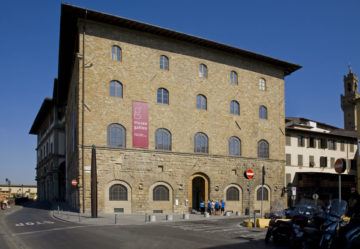by Andrea Scrima
1.
What is power? The answer is relative, contingent on context. We speak of the power of sexual allure, the power of persuasion, of charisma, but these only rarely translate into sustainable structures of actual dominance. In a capitalist democracy, power is generally economic and political; it’s less frequently defined as intellectual or moral force. As an artist and writer whose works are not, as sometimes happens in other political systems, banned (which would enhance their power in a different intellectual economy), but merely sell poorly, I have relatively little power, and so my words come from the position of a person frequently, in one way or another, subject to the will of others.
Given the vast difference in agency prevailing between artists and patrons, is an intellectual, artistic, ethical discussion on equal terms even possible? Wealth inspires conflicting emotions in people who don’t have it: envy for the ease and security it affords, because so many of the problems that plague us can be solved with money; frustration that the notion of equitable taxation is evidently a utopian impossibility; dismay at the injustices of wealth distribution and the damage the ever-widening economic divide between the haves and have-nots has inflicted on society, the environment, and world peace. But without wealth, it’s said, we would never have had the splendor of kingdoms and courts; the magnificent cathedrals and palaces would never have been built, the arts would never have flourished. The concentration of wealth and the judicious application of its power is what makes civilizations thrive. Indeed, people working in the arts will always find themselves in happy or unhappy alliance with those in a position to fund their endeavors and will forever speculate on the underlying motivations of those who give so “generously.” The relationship that binds the arts to wealth is inherently problematic, a form of co-dependence in which power is negotiated according to ever-shifting terms. Read more »

 This past spring, I found myself sitting, masked, at a wooden desk among a scattering of scientific researchers at the Museo Galileo in Florence. Next to me was a thick reference book on the history of astronomical instruments and a smaller work on the sundials and other measuring devices built into the churches of Florence to mark the cyclical turning points of cosmic time. The gnomon of Santa Maria del Fiore, for instance, consisted of a bronzina, a small hole set into the lantern ninety meters above that acted as a camera oscura and projected an image of the sun onto the cathedral floor far below. At noon on the day of the solstice, the solar disc superimposed itself perfectly onto a round marble slab, not quite a yard in diameter, situated along the inlaid meridian. I studied the explanations of astronomical quadrants and astrolabes and the armilla equinoziale, the armillary sphere of Santa Maria Novella, made up of two conjoined iron rings mounted on the façade that told the time of day and year based on the position of their elliptical shadow, when all at once it occurred to me that I’d wanted to write about something else altogether, about a person I occasionally encountered, a phantom living somewhere inside me: the young woman who’d decided not to leave, not to move to Berlin after all, to rip up the letter of acceptance to the art academy she received all those years ago and to stay put, in New York. Alive somewhere, in some other iteration of being, was a parallel existence in an alternative universe, one of the infinite spheres of possibility in which I’d decided differently and become a different woman.
This past spring, I found myself sitting, masked, at a wooden desk among a scattering of scientific researchers at the Museo Galileo in Florence. Next to me was a thick reference book on the history of astronomical instruments and a smaller work on the sundials and other measuring devices built into the churches of Florence to mark the cyclical turning points of cosmic time. The gnomon of Santa Maria del Fiore, for instance, consisted of a bronzina, a small hole set into the lantern ninety meters above that acted as a camera oscura and projected an image of the sun onto the cathedral floor far below. At noon on the day of the solstice, the solar disc superimposed itself perfectly onto a round marble slab, not quite a yard in diameter, situated along the inlaid meridian. I studied the explanations of astronomical quadrants and astrolabes and the armilla equinoziale, the armillary sphere of Santa Maria Novella, made up of two conjoined iron rings mounted on the façade that told the time of day and year based on the position of their elliptical shadow, when all at once it occurred to me that I’d wanted to write about something else altogether, about a person I occasionally encountered, a phantom living somewhere inside me: the young woman who’d decided not to leave, not to move to Berlin after all, to rip up the letter of acceptance to the art academy she received all those years ago and to stay put, in New York. Alive somewhere, in some other iteration of being, was a parallel existence in an alternative universe, one of the infinite spheres of possibility in which I’d decided differently and become a different woman.